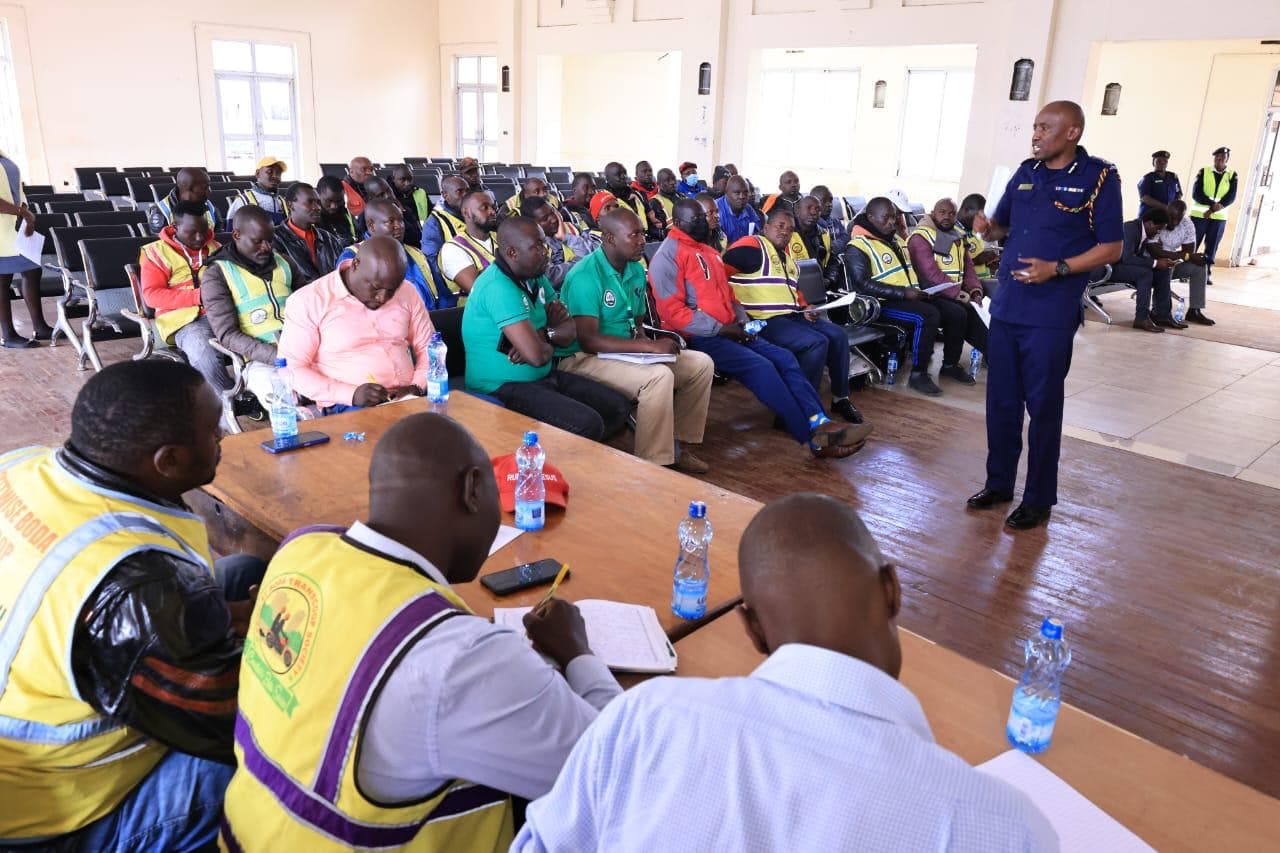We're loading the full news article for you. This includes the article content, images, author information, and related articles.
The National Transport and Safety Authority is enforcing existing traffic laws targeting the unsafe practice of sitting sideways on motorcycles, a move prompted by a sharp 15% increase in pillion passenger deaths this year.

NAIROBI, KENYA – The National Transport and Safety Authority (NTSA) has issued a stern warning against the common practice of passengers, particularly women, sitting sideways on boda bodas, citing grave safety risks and a direct link to the rising number of road fatalities. The advisory, highlighted on Monday, November 17, 2025, is a renewed effort to enforce a long-standing traffic rule as the country grapples with alarming accident statistics.
According to NTSA officials, sitting with both legs on one side severely compromises a passenger's stability and the motorcycle's centre of gravity. South Nyanza NTSA Manager Adan Adow explained that this posture makes it difficult for a passenger to help the rider maintain balance, especially during sudden manoeuvres or when navigating uneven road surfaces. "When an emergency brake is applied, a passenger on a motorcycle is likely to lose balance and fall either backwards or forwards," Mr. Adow stated, noting that this sitting style significantly increases the chances of sustaining serious injuries in a crash.
The renewed focus on this safety regulation is underscored by harrowing data released by the NTSA to mark the World Day of Remembrance for Road Traffic Victims on Sunday, November 16, 2025. The report revealed a 15% surge in pillion passenger deaths between January 1 and November 13, 2025, with 411 fatalities recorded during this period. Overall, motorcyclists and their passengers continue to be one of the most vulnerable groups on Kenyan roads. Data from the first quarter of 2025 showed that at least 431 lives were lost in motorcycle-related accidents, averaging five deaths per day.
The NTSA's warning is not a new decree but an enforcement of Section 60 of the Traffic Act (CAP 403). The law explicitly states that a pillion passenger must be carried "sitting astride the motorcycle and on a proper seat securely fixed to the motorcycle behind the driver's seat." Violation of this section makes the driver liable for an offence, which can attract a fine not exceeding ten thousand shillings. The regulations also mandate that both the rider and passenger must wear a helmet.
Despite the clear legal provisions, the practice of sitting sideways, often referred to as side-saddle, persists. This is frequently attributed to cultural norms of modesty, especially for women wearing skirts or dresses, making the astride position uncomfortable or impractical. This cultural reality presents a significant challenge to enforcement and has sparked a debate on balancing safety imperatives with daily commuter practices for thousands of Kenyan women who rely on boda bodas for transport.
The boda boda industry, a vital part of Kenya's informal economy with over two million registered motorcycles, is facing intense scrutiny. Beyond unsafe passenger seating, the sector is plagued by issues of reckless driving, disregard for traffic rules, and involvement in criminal activities, which have led to calls for sweeping reforms. According to NTSA data, motorcyclists accounted for nearly half of the 1,139 road fatalities recorded in the first three months of 2025.
Hospitals have reported being overwhelmed by the number of boda boda accident victims, with some establishing dedicated trauma wards to handle the influx. The economic cost is also staggering, with road crashes costing the country an estimated 3-5% of its annual GDP, translating to billions of shillings in lost productivity and medical expenses.
In response, the government and NTSA have initiated several measures, including a new registration drive for riders, the introduction of localized uniforms for easier identification, and the rollout of the National Road Safety Action Plan (2024–2028), which aims to enhance rider training and traffic law enforcement. However, proposals for stricter regulation, such as the Public Transport (Motorcycle) Regulation Bill, 2023, have faced resistance from boda boda associations who argue the measures are punitive and could create bureaucratic hurdles.
As the NTSA intensifies its crackdown, the focus remains on changing dangerous behaviours on the road. The authority insists that adherence to fundamental safety rules, such as proper seating and helmet use, is a critical and non-negotiable step in curbing the tragic loss of life on Kenya's roads.
Keep the conversation in one place—threads here stay linked to the story and in the forums.
Sign in to start a discussion
Start a conversation about this story and keep it linked here.
Other hot threads
E-sports and Gaming Community in Kenya
Active 9 months ago
The Role of Technology in Modern Agriculture (AgriTech)
Active 9 months ago
Popular Recreational Activities Across Counties
Active 9 months ago
Investing in Youth Sports Development Programs
Active 9 months ago